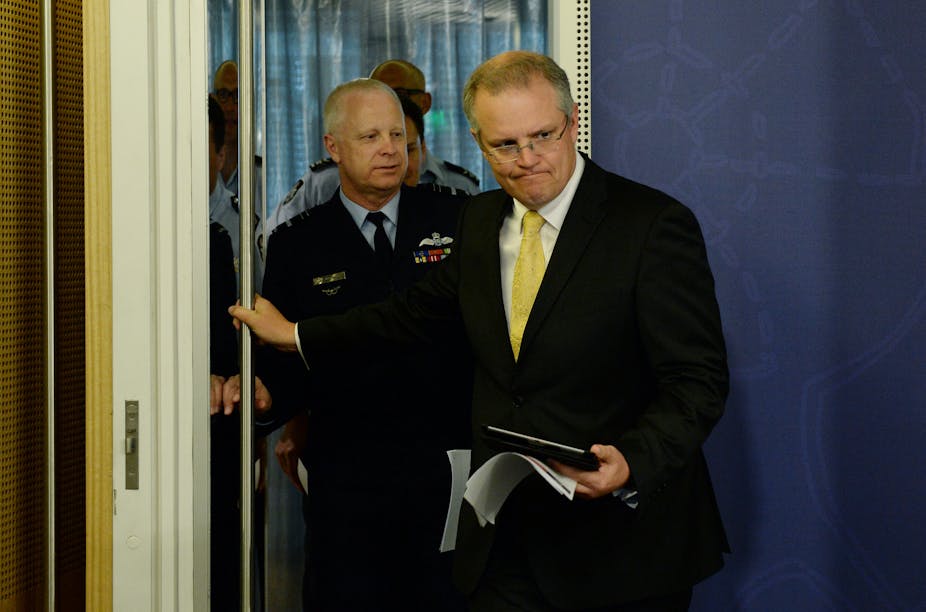It is remarkable how complacent Australia’s media has been in response to the federal government’s brazenly cynical suppression of information about asylum seeker boat arrivals. There were a few indignant editorials and then the circus moved on.
Doubtless, this is exactly what the Abbott government anticipated. It is a truism of media relations that you get your nasty stuff out of the way quickly, because the short-windedness of the media means that your pain will all be over in 24 hours.
On this occasion, however, the nasty stuff concerns suppression of information to the public about what the government is doing in a highly contentious area of public policy. It has been achieved by simply reframing a humanitarian issue as a national security issue.
The Labor opposition and the Greens have tried to keep it alive, and have been duly reported. Labor has from time to time claimed credit for any reduction in boat arrivals, and has been duly reported.
Incidents at sea, including the co-ordination of a recent rescue of a boat in distress, have been duly reported, as have sightings by Christmas Islanders.
The weekly briefings by the Minister for Immigration, Scott Morrison, have been duly reported, as has his recent decision to brand asylum seekers as “illegals” - a throwback to the inflammatory and inaccurate language of the Howard era.
But it is all so passive. It depends on something happening or someone saying something. Where is the pro-active disclosure journalism that is always necessary as a counter to government secrecy?
Where is the voice of Australia’s Right to Know? This brave and righteous coalition of media interests, including News Corp and Fairfax Media, can always be heard loudly defending what it asserts to be “the public’s right to know” when there is any suggestion that the media’s own interests are at stake.
Now - when there is a genuine public right to know – Australia’s Right to Know coalition is deafeningly silent.
It is possible, of course, that behind the scenes, reporters are working at accumulating evidence about what the government is doing and that the fruits of their work will soon be revealed.
It is to be hoped so because an important principle is at stake. National security is where media freedom and government suppression of information conflict sharply. It is most vividly exemplified by wartime censorship, which has always been the cause of heated debate between media and government.
Wartime censorship at least has the merit of moral justification - protecting military personnel and denying information to the enemy. At the same time, war is a matter of the most serious public interest, and so media companies have fought hard to report as much of it as they can.
They have been right to do so because it is a key function of the media to tell the public what is going on, to defend freedom of speech, and to resist government suppression. These duties are recognised in codes of ethics and practice across the Western world.
In Australia, the Australian Press Council counts among its duties the promotion of freedom of expression. The code of ethics of the Media Entertainment and Arts Alliance, which is Australia’s only national code for journalists, also counts the promotion of free speech as among the duties of journalists.
It is curious, then, that the media have been so supine in the current situation, where there is simply no justification for invoking national security considerations. It is all just spin. Terms like “Operation Sovereign Borders” give the boat patrol a military flavour without the substance. There is no mortal enemy trying to kill Australian service personnel. There is no war.
Perhaps the media have been disarmed by the simplicity of the government’s action, seeing it as only one more exercise in media management. Perhaps they are just bored by the whole asylum seeker story. Perhaps now that Tony Abbott has shut down his political sound-and-light show around the issue, a press gallery addicted to the theatre of politics does not see a story there any more.
Whatever the cause, the media seem to have lost sight of the larger principle at stake. If governments can extend the boundaries of national security to include anything it finds embarrassing or difficult, then the public’s right to know really will be in peril.

